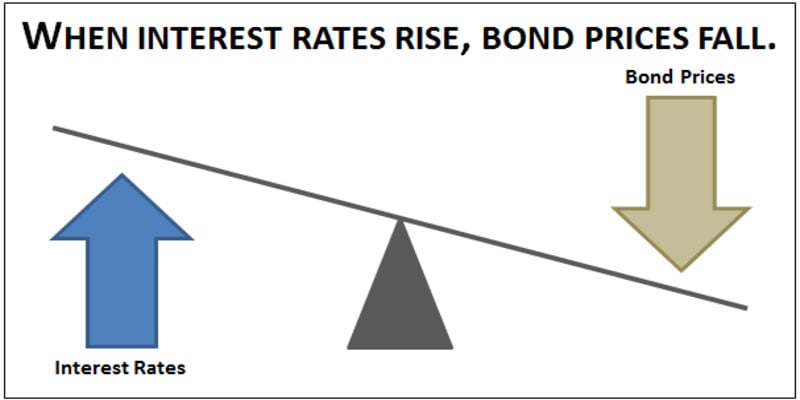Advertisement
Advertisement
How to Calculate the Return on Investment (ROI) of a Marketing Campaign
Sep 24, 2024 By Kelly Walker
Are you interested in increasing your marketing campaign's return on investment (ROI)? Calculating ROI can be a complicated and daunting task for even experienced marketers. This blog post will provide tips and tricks to help you quickly calculate the ROI for any marketing campaign.
We'll also reveal the best practices that successful businesses employ when calculating their ROIs so that you can maximize returns from your efforts. Read on to learn more about how to accurately calculate these key metrics and up your game in marketing.
Explain why Calculating ROI is important for a marketing campaign
Calculating a marketing campaign's return on investment (ROI) is one of the most important things you can do as a business owner. You need more than just spending money on marketing and hope that it pays off; you need to be able to measure how successful your efforts are so that you can adjust and optimize them accordingly. By calculating your ROI, you can better understand the impact of your marketing campaigns and make more informed decisions about allocating resources.
Outline the 4 Steps of Calculating ROI

Four steps need to be taken to calculate a marketing campaign's return on investment (ROI).
1. Estimate the cost of your marketing campaign and all related expenses, such as materials, labour, and overhead. Include any third-party fees, such as advertising agency or graphic design costs.
2. Identify the revenue that was generated by the campaign. This will be based on sales volume and price per unit, as well as any other revenue streams (such as donations or subscriptions) that were a direct result of the campaign.
3. Calculate your total return by subtracting your expenses from your revenue.
4. Divide the total return by the total cost of the marketing campaign to calculate your ROI. This will tell you how much money was made per dollar spent on the campaign.
By following these steps, you can quickly and accurately calculate the ROI of a marketing campaign, allowing you to make informed decisions about future investments.
Explain how to calculate Cost Per Acquisition and Return on Investment (ROI)

The Cost Per Acquisition (CPA) is an important metric for any marketing campaign and can be used to calculate the Return on Investment (ROI). CPA is calculated by dividing total marketing campaign costs by the conversions (sales, leads, etc.) generated. The calculation is as follows:
CPA = Total Campaign Costs/Total Conversions
Once you have calculated your CPA, you can calculate a marketing campaign's ROI (ROI). ROI is calculated by subtracting the cost per acquisition from the average revenue per conversion and dividing that number by the cost per acquisition.
The calculation is as follows:
ROI = (Average Revenue Per Conversion - Cost Per Acquisition)/Cost Per Acquisition
This gives you a percentage figure that indicates how much revenue your campaign has generated versus the cost of running it. By calculating these figures, you can make informed decisions about where to invest your resources and whether or not to continue a marketing campaign.
Another way to calculate ROI is to use the profit margin formula. This calculation subtracts total costs (including all expenses associated with running the campaign) from total revenue generated and divides that figure by total costs to give you your net profit margin. The calculation is as follows:
Profit Margin = (Total Revenue - Total Costs)/Total Costs
Finally, you can use the lifetime value of a customer to calculate ROI. This is done by subtracting the cost per acquisition from the average revenue generated throughout the customer's life cycle and dividing that by the cost per acquisition. The calculation is as follows:
Lifetime Value ROI = (Average Revenue Per Customer - Cost Per Acquisition)/Cost Per Acquisition
By taking the time to calculate these figures, you can gain valuable insights that will help you maximize your marketing campaign's return on investment. Knowing how to calculate CPA and ROI is essential for anyone looking to measure the effectiveness of their marketing efforts.
Highlight common mistakes to avoid when calculating ROI
When calculating a Marketing Campaign's Return on Investment (ROI), it is important to consider potential pitfalls. Common mistakes that can occur when measuring ROI include:
- Focusing too much on short-term gains: Focusing solely on short-term profits can lead to an incomplete view of a campaign's effectiveness. It is important to analyse the long-term implications of a campaign as well.
- Not accounting for all relevant costs: All costs associated with the marketing campaign must be considered when calculating ROI, including variable and fixed costs.
- Forgetting to measure non-financial impacts: While tracking financial data is important for measuring ROI, it is also important to track customer satisfaction, awareness, loyalty, and other non-financial impacts of the campaign.
By avoiding these common mistakes when calculating the ROI of a marketing campaign, you can ensure that your calculations are as accurate as possible. This will ultimately help you make better strategic decisions for your business.
FAQs
How do you calculate ROI for a marketing campaign?
ROI for a marketing campaign can be calculated by following the formula: (Revenue - Cost of Campaign) / Cost of Campaign. It is important to note that ROI does not just reflect on the financial gains made and considers customer lifetime value and satisfaction metrics.
How is the return on investment ROI calculated?
ROI is typically calculated using the following formula: (Gain from Investment - Cost of Investment) / Cost of Investment. This formula can measure ROI for any investment, including a marketing campaign.
What is the formula for Mroi?
MROI stands for Marketing Return on Investment and is calculated using the following formula: (Revenue Generated - Total Campaign Cost) / Total Campaign Cost. This formula helps marketers measure how effectively their campaigns perform regarding profitability.
Conclusion
Calculating ROI is an essential part of any marketing campaign and can help you continue to make the best decisions for your business. By measuring and evaluating the successes and failures of certain strategies, you can learn what works and what doesn't and adjust accordingly. Marketers can implement the most successful strategies by understanding the 4 steps of calculating ROI, Cost Per Acquisition (CPA) and Return on Investment (ROI) and avoiding common mistakes.
On this page
Explain why Calculating ROI is important for a marketing campaign Outline the 4 Steps of Calculating ROI Explain how to calculate Cost Per Acquisition and Return on Investment (ROI) Highlight common mistakes to avoid when calculating ROI FAQs How do you calculate ROI for a marketing campaign? How is the return on investment ROI calculated? What is the formula for Mroi? Conclusion
Net Profit Margin: An Overview

Understanding Single-Premium Life Insurance: A Comprehensive Guide

The Inverse Connection Between Interest Rates And Bond Prices

Deciphering Hedge Funds: Balancing Returns and Fees

Stock Exchange Owners: A Closer Look at the Players

What Is a Contingent Liability?

What's The Difference Between Competitive And Business Intelligence?

Best Buy's Expanding Portfolio: Top 3 Subsidiary Companies



